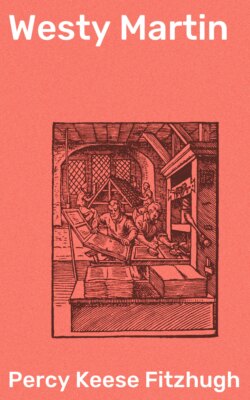Читать книгу Westy Martin - Percy Keese Fitzhugh - Страница 11
На сайте Литреса книга снята с продажи.
CHAPTER IX
ON THE TRAIL
ОглавлениеTable of Contents
Barrett’s was not accustomed to visits from nattily attired boy scouts with rifles slung over their shoulders and the lolling youths of the settlement stared at him and commented audibly as he passed.
“Hey, what’s that you got over your shoulder?” one of them called.
“That, oh, that’s a soup spoon,” said Westy, quite unperturbed. “Do you know where Luke Meadows lives?”
“What d’yer want ’im fer?” one of the natives asked.
“Oh, I just wanted to see him,” said Westy.
“Whatcher want ter see ’im fer?”
“Oh, just for fun. Do you know where he lives?”
“He lives in that white house up the road,” said a rather more accommodating boy. “Do you see the house with the winder broken? The one with the chimney gone? He lives there, only he ain’t home.”
“He is too,” contradicted another informer. “I seen him go in his back door half an hour ago; he come around through the fields from the woods.”
“Thanks,” said Westy.
If Luke Meadows lived in the house indicated and had indeed returned home through the fields, then he must have emerged from the woods at a considerable distance from his home, an unnecessary thing to do except upon the theory that he wished to throw some one off his track, or at least avoid being seen. Westy thought he could sense the position in which this man stood toward the game wardens of the county. He thought it likely that there had been previous encounters between them. Hunting game out of season is a pursuit which is pretty apt to be chronic.
Now that Westy was about to encounter this man, he felt just a little trepidation. Perhaps it would have been better to go to Chandler first. But then the matter would have been out of his hands. He wished first to tell this man a thing or two which scouts know....
As he went along the narrow, dusty road, his uneasiness increased. He was not exactly afraid but he was beginning to balk a little at the prospect of denouncing a person who was probably many years his senior.
The little houses along the road, which must have been hopelessly unsightly from the beginning, had fallen into a state of disrepair and squalor which seemed in striking discord with the surrounding countryside. A slum in the city is bad enough; in the fair country it is shockingly grotesque.
These little houses were double, each holding two families, and some of them were in blocks of three or four. They seemed to nestle under the shadow of the big wooden factory back in the field. Every window of the big factory was broken and a more forlorn picture of disuse and dilapidation could scarcely be imagined. From this factory a rusty railroad track disappeared into the woods; it had probably once joined the main line at Chandler.
Beyond these little rows of cheap frame houses was one which stood by itself. Its chimney was indeed gone and its window broken, but at least it stood by itself, was of a different color and architecture from the others, and had, in its shabby way, a character of its own. A little girl was swinging on the fence gate, or would have been swinging if the hinges had not been broken. A dried and curling woodchuck skin was nailed to the clapboards beside the door, a dubious hint of the predilections of the householder.
